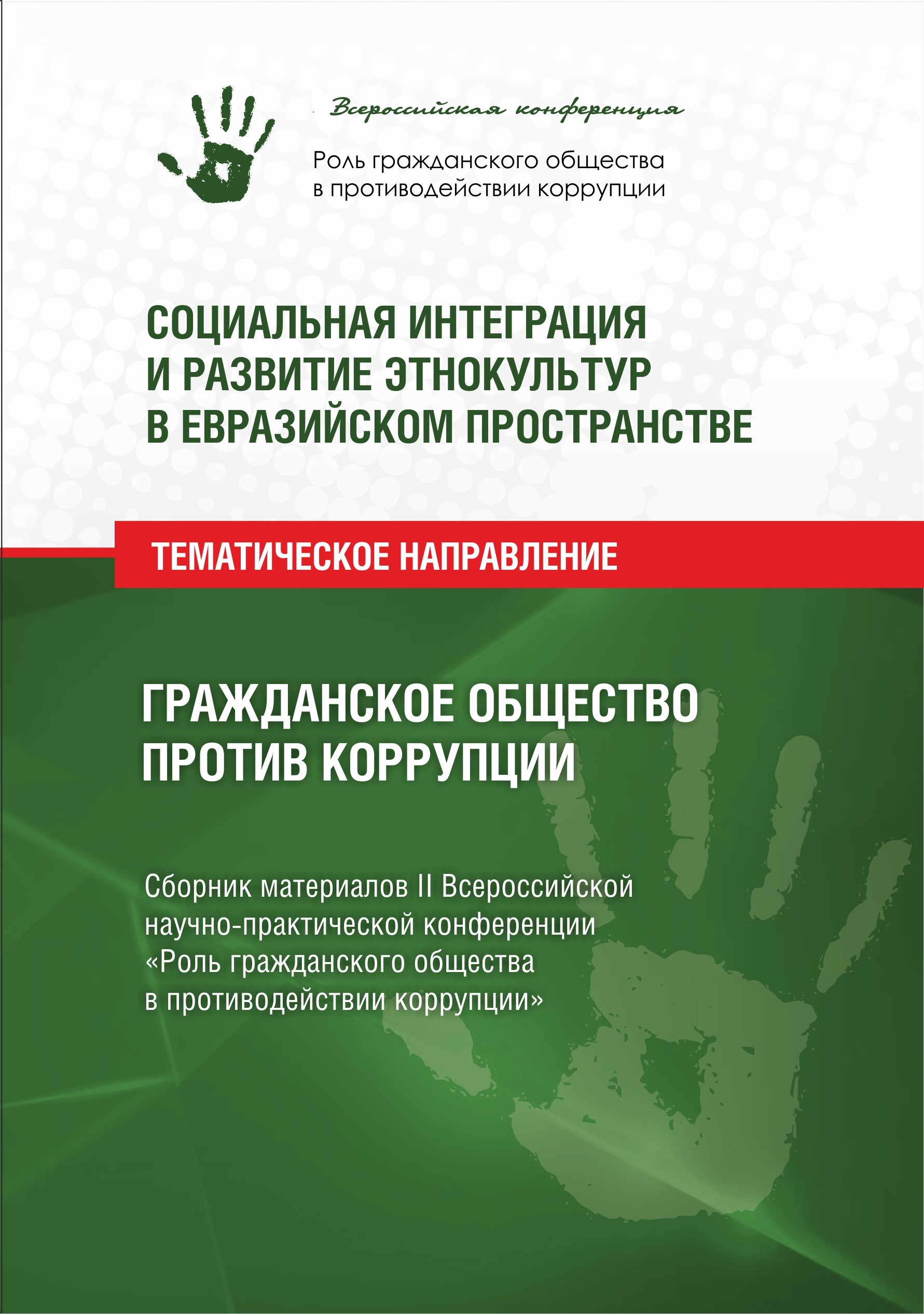CORRUPTION RELATIONSHIP AS A LATENT RESOURCE FOR PARTICIPANTS IN SOCIAL CONFLICTS
Main Article Content
Abstract
The article analyzes various resources of participants in the social conflict. In particular, as a fairly important resource in the conflict, it is recognized that the parties have certain corrupt ties with other influential subjects of society. Corruption in the work is considered as a negative complex phenomenon in society. The correlation between the concepts of «corruption», «corruption relations» and the concepts of «social conflict» and «resources of the conflict participants» is analyzed. Various approaches to understanding the concept of «corruption» are considered, and the author's definition of the concept of «corruption relations of a conflict participant» is proposed. Special attention is paid to the use of actions by the parties to the conflict based on their corruption ties. A number of negative consequences of this phenomenon in the Russian society are shown and effective mechanisms for combating corruption are proposed. The author's reasoned judgments on the issues under consideration are given.
Downloads
Download data is not yet available.
Article Details
How to Cite
[1]
Nagaytsev , V.V. 2020. CORRUPTION RELATIONSHIP AS A LATENT RESOURCE FOR PARTICIPANTS IN SOCIAL CONFLICTS. Social Integration and Development of Ethnic Cultures in the Eurasian Space. 1, 9 (May 2020), 56-62.
Section
ГОСУДАРСТВО, ГРАЖДАНСКОЕ ОБЩЕСТВО И КОРРУПЦИЯ

This work is licensed under a Creative Commons Attribution 4.0 International License.
References
Андрианов В. Д. Коррупция как глобальная проблема: история и современность. М.: Экономика, 2019. 304 с.
Бондаренко С. В. Коррумпированные общества. Ростов н/Д: Ростиздат, 2017. 362 с.
Бурдье П. Формы капитала / Западная экономическая социология: Хрестоматия современной классики. Сост. и науч. ред. В. В. Радаев. – М.: Российская политическая энциклопедия, 2004. С. 268.
Добреньков В. И., Исправникова Н. Р. Коррупция: современные подходы к исследованию: учеб. пособие. М.: Академический Проект: Alma Mater, 2009. 206 с.
Епархина О. В. Теоретические основы исследования коррупционных проявлений в РФ. Ярославль: Литера, 2018. 236 с.
Най Дж. Гибкая сила. Как добиться успеха. М.: Тренд, 2016. 397с.
Охотский Е. В. Коррупция. Сущность и меры противодействия // Социологические исследования. 2019. № 9. С. 25–33.
Филиппова Т. В. Значение коррупционных связей в современном обществе // Альманах современной науки и образования. 2019. № 10. С. 186–190.
Coleman J. Social Capital in the Creation of Human Capital // American Journal of Sociology. 1988. Volume 94. – P. 95–120.
Loury G. Social Exclusion and Social Groups: The Challenge to Economics // Social and Economic Studies. 1999. № 45. P. 13–19.
Бондаренко С. В. Коррумпированные общества. Ростов н/Д: Ростиздат, 2017. 362 с.
Бурдье П. Формы капитала / Западная экономическая социология: Хрестоматия современной классики. Сост. и науч. ред. В. В. Радаев. – М.: Российская политическая энциклопедия, 2004. С. 268.
Добреньков В. И., Исправникова Н. Р. Коррупция: современные подходы к исследованию: учеб. пособие. М.: Академический Проект: Alma Mater, 2009. 206 с.
Епархина О. В. Теоретические основы исследования коррупционных проявлений в РФ. Ярославль: Литера, 2018. 236 с.
Най Дж. Гибкая сила. Как добиться успеха. М.: Тренд, 2016. 397с.
Охотский Е. В. Коррупция. Сущность и меры противодействия // Социологические исследования. 2019. № 9. С. 25–33.
Филиппова Т. В. Значение коррупционных связей в современном обществе // Альманах современной науки и образования. 2019. № 10. С. 186–190.
Coleman J. Social Capital in the Creation of Human Capital // American Journal of Sociology. 1988. Volume 94. – P. 95–120.
Loury G. Social Exclusion and Social Groups: The Challenge to Economics // Social and Economic Studies. 1999. № 45. P. 13–19.

